Year 4 children classifying invertebrates.
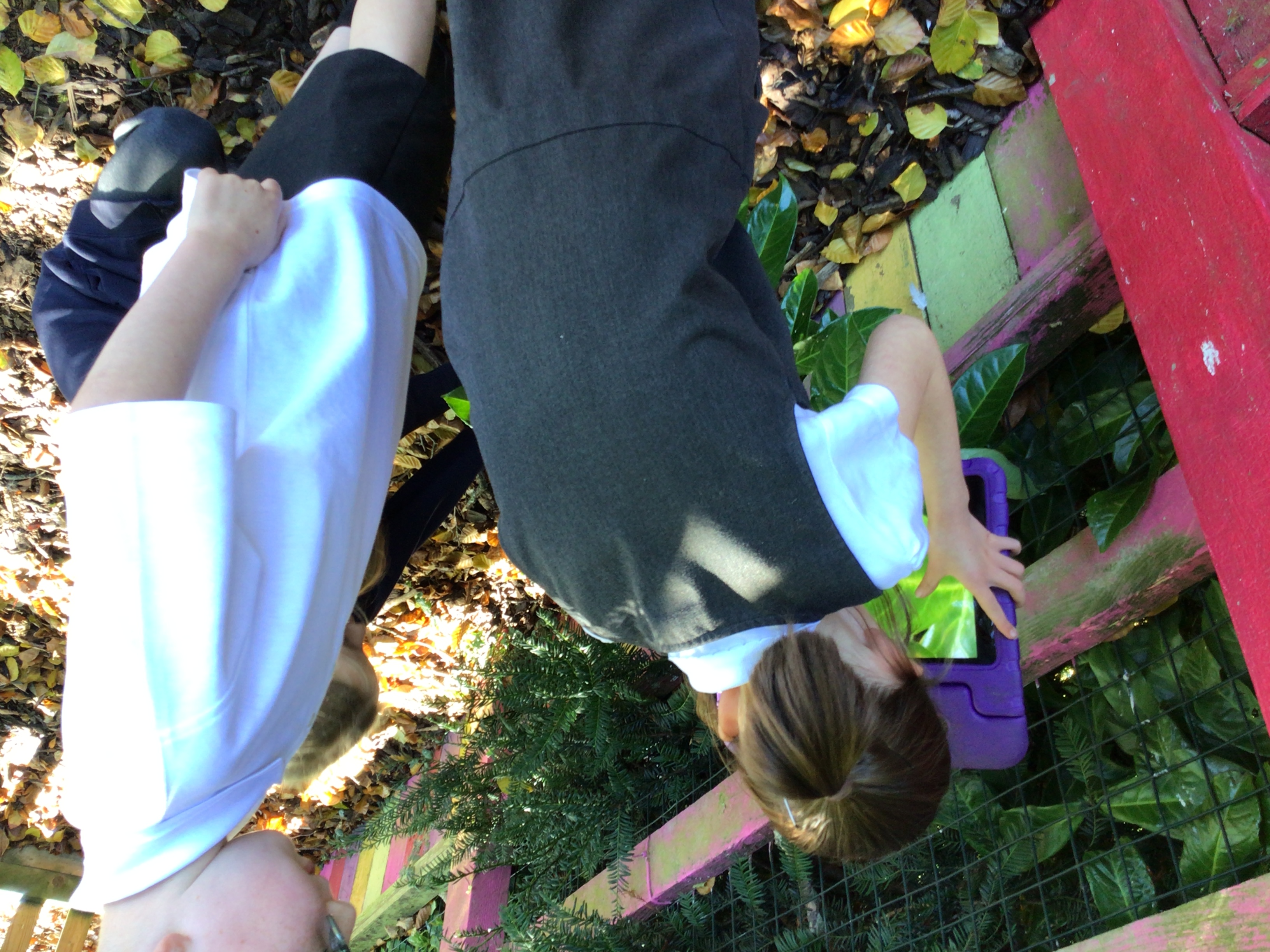
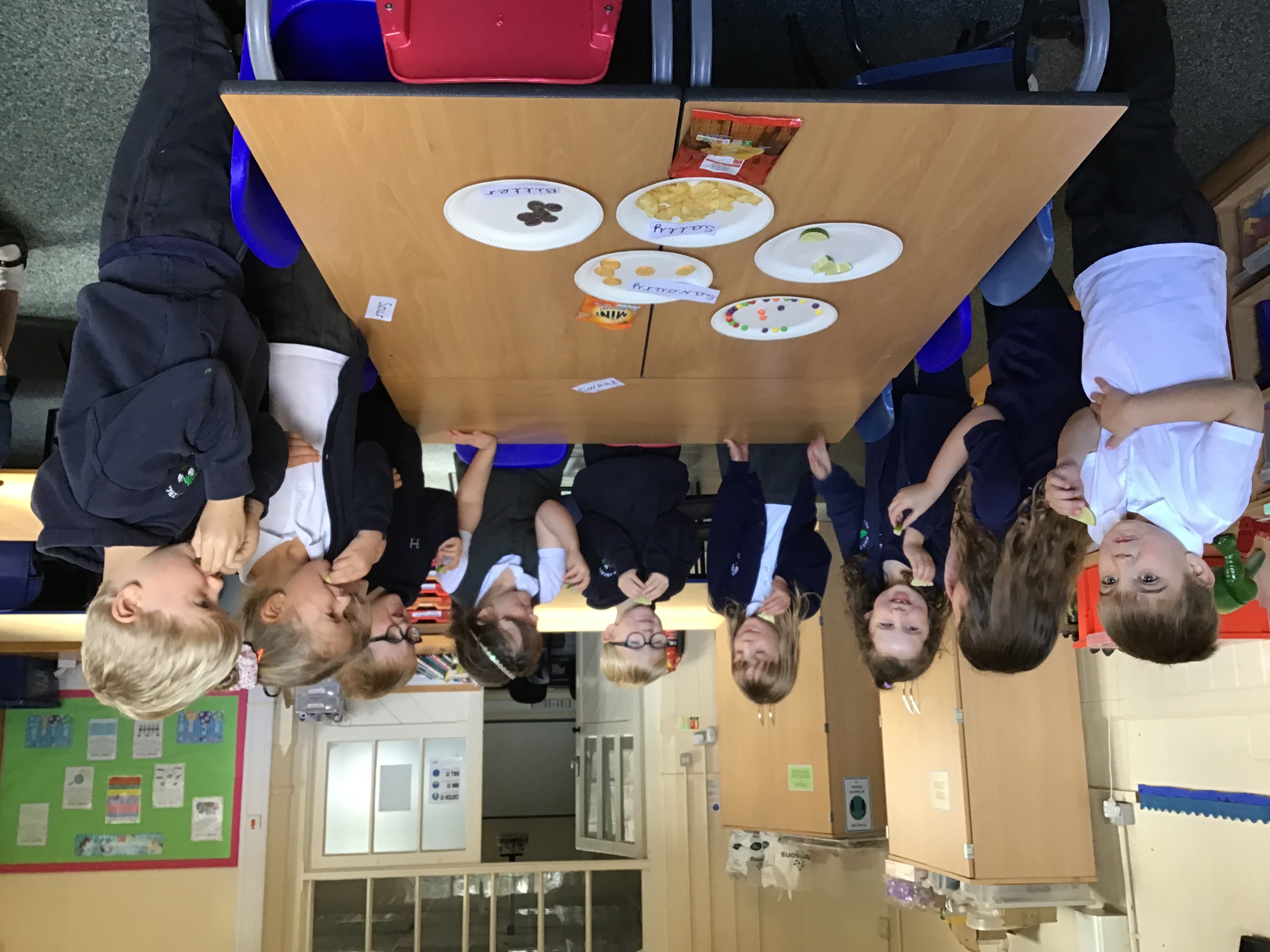
Tasting different foods to learn about our taste buds in Year 1.
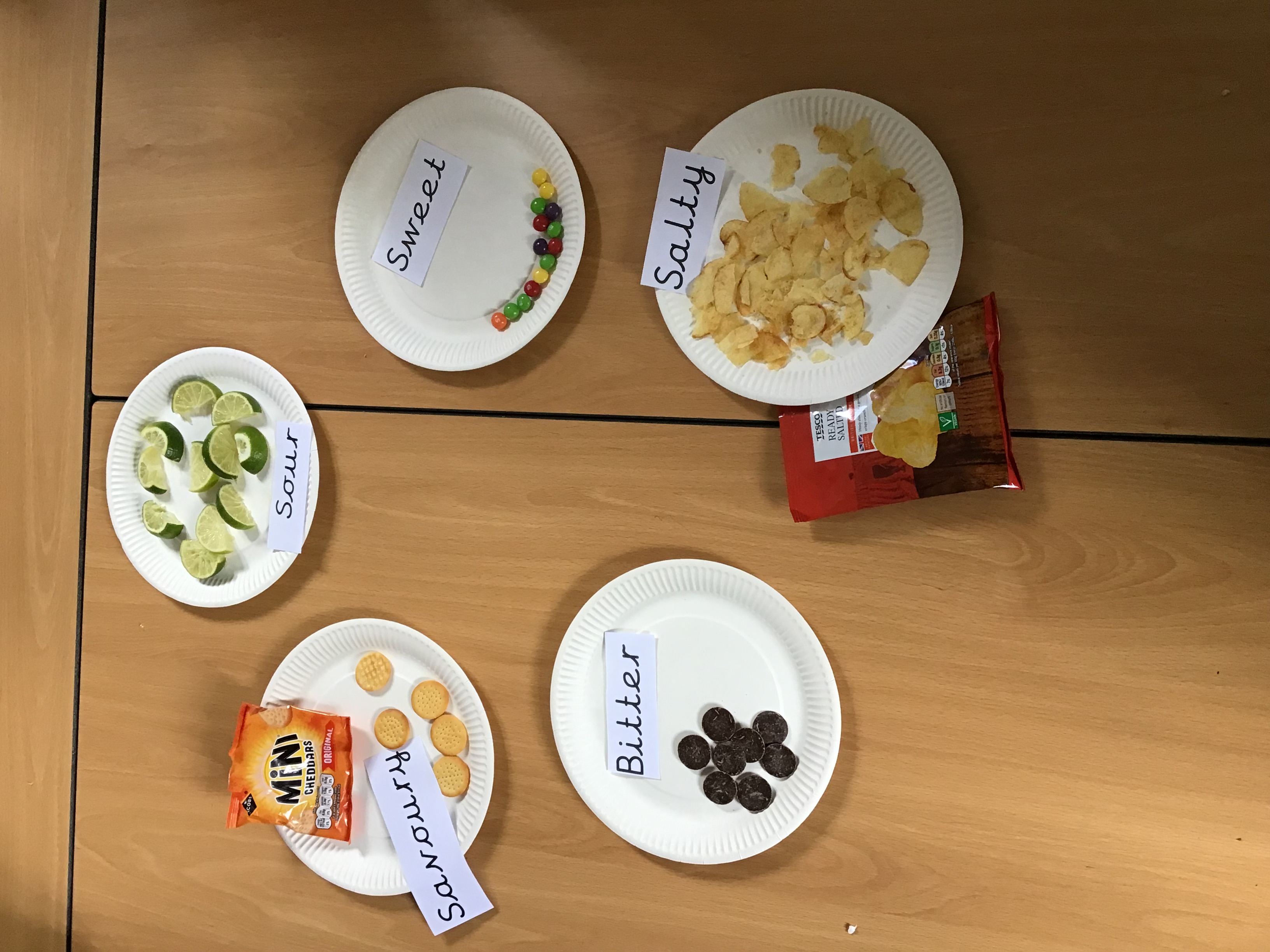
Year 1 sorted the different foods after tasting them.
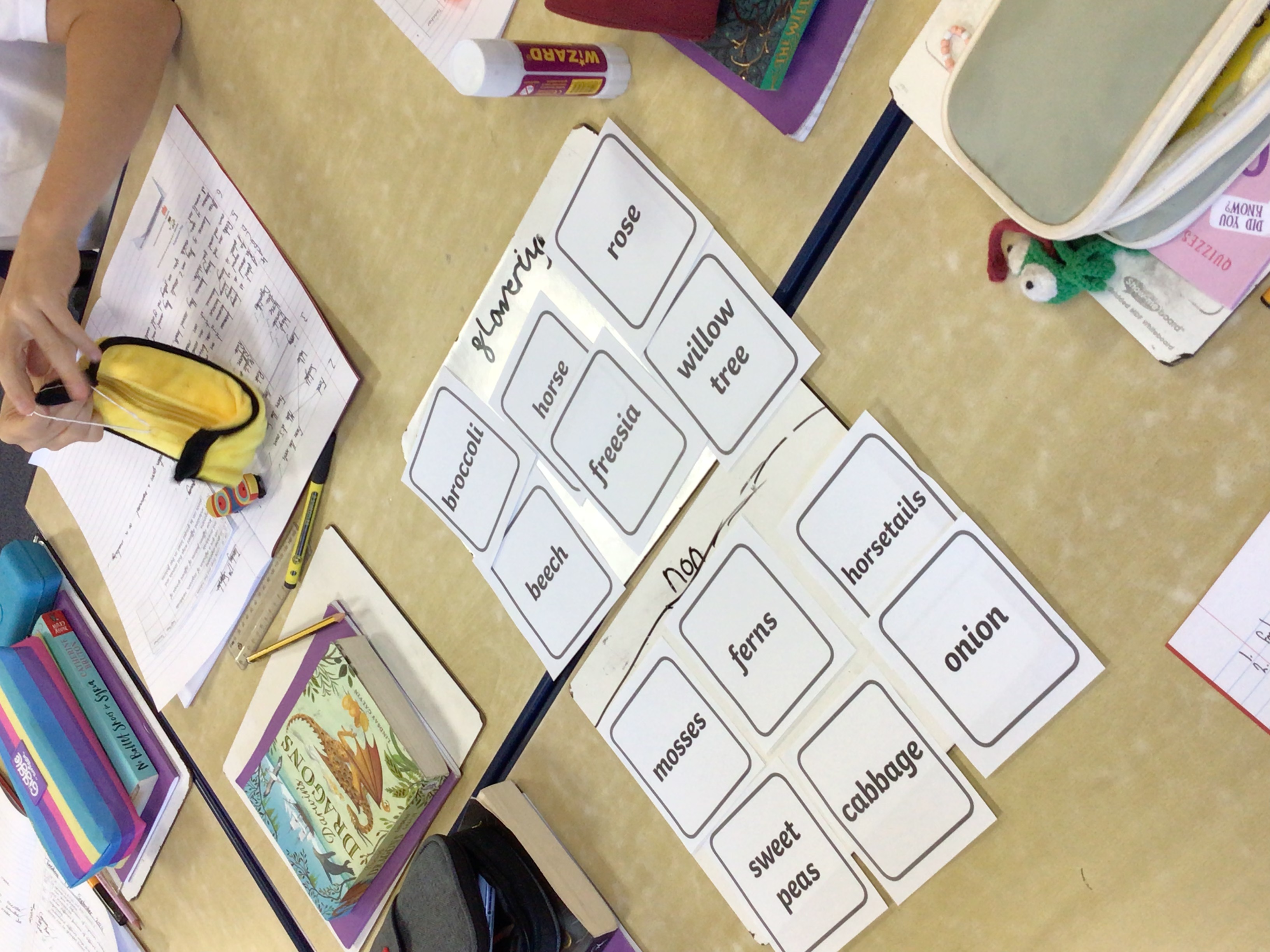
Sorting flowering and non-flowering plants in Year 6.
Intent
What does Science look like at High Ercall?
At High Ercall Primary School we recognise the importance of Science in every aspect of daily life and encourage children to be inquisitive throughout their time at school and beyond. We want children to develop an enthusiasm and enjoyment of scientific learning, and discovery, and to build upon their resilience and problem solving skills. We aim to ensure that children know and remember more through their development of substantive knowledge (facts, concepts and laws) and disciplinary knowledge (working scientifically). Substantive knowledge is revisited regularly through recaps during lesson starters, quizzes and the use of mind maps.
Our curriculum has been built to include our key curriculum drivers:
- our school values, the 5Rs
- the role of active learning
- building our children’s understanding of diversity.
In their time at High Ercall, we ensure that the children access the National Curriculum and have carefully considered the journey of a child through the school, so that our curriculum is progressive even when a child remains in a class for 2 years. We do this by splitting into year groups when teaching Science, rather than remaining in the normal mixed age classes.
The 2014 National Curriculum for Science aims to ensure that all children:
- develop scientific knowledge and conceptual understanding through the specific disciplines of biology, chemistry and physics
- develop understanding of the nature, processes and methods of science through different types of science enquiries that help them to answer scientific questions about the world around them
- are equipped with the scientific skills required to understand the uses and implications of science, today and for the future.
At High Ercall we believe that the transfer of skills from the other core subjects is important and necessary to the teaching of Science. The quality and variety of language that pupils hear and speak are key factors in developing their scientific vocabulary and articulating scientific concepts clearly and precisely. We ensure that pupils are assisted in making their thinking clear, both to themselves and others, and we build secure foundations by using discussion to probe and remedy their misconceptions. We feel that pupils should be able to describe processes and key characteristics in their own words, but they should also be familiar with, and use, technical terminology accurately. We enable them to build up an extended specialist vocabulary, which is supported through our use of ‘vocabulary mats or walls’ in classrooms for each topic area and Key Stage. Pupils are also taught, and are expected, to apply their mathematical knowledge to their understanding of science, including collecting, presenting and analysing data as part of working scientifically. These links with maths ensure that disciplinary knowledge is gained and maintained through regular rehearsal.
We ensure that the Working Scientifically skills are built-on and developed throughout children’s time at the school so that they can apply their knowledge of science when using equipment, conducting investigations, building arguments and explaining concepts confidently. This enables them to continue to ask questions and be curious about their surroundings.
What do we want children to be able to do by the end of Year 6?
We follow the National Curriculum expectations for Science and expect that our pupils will have met, or exceeded, the expected standards for Year 6 pupils. As the pupils progress through school we expect them to be able to understand the ‘Scientific Method’ for carrying out investigations and to be able to use different types of enquiry in order to answer questions. They should have acquired knowledge about the world around them and be able to ‘work scientifically’, using cross-curricular learning. They should be curious and respectful of our universe and ready for the transition to Key Stage 3.
How will this support the children in lifelong learning?
Science contributes towards many subjects, and it is important that children are given opportunities to apply and use their skills in real contexts. Where possible, cross curricular links are made in order to provide meaning and context to the teaching. This will allow the children to gain an understanding of how Science fits in to everyday life and make connections with the real world. The skills of reasoning, curiosity, investigation, mathematics and resilience developed through Science are those that will be used across all learning and into adulthood.
Implementation
How is the curriculum for Science organised and how do we teach it?
Science is taught one afternoon per week and there is a clear progression map showing learning across all year groups and key stages. This details the topics covered, when and who by. There are also long-term plans, for each year group, detailing topic areas and when to teach them. The ‘White Rose Science’ scheme of work is used across school, ensuring a challenging curriculum offer with a clear development of skills and knowledge. It ensures close links with Mathematics skills, that are relevant to each year group, and sets out the ‘working scientifically’ expectations for all ages too.
Teachers create a positive attitude to Science learning within their classrooms and reinforce an expectation that all children are capable of achieving high standards. Our whole school approach to the teaching and learning of Science involves the following;
- Problem solving opportunities that allow children to find out for themselves. Children are encouraged to ask their own questions and be given opportunities to use their scientific skills and research to discover the answers. This curiosity is celebrated within the classroom. Teachers use precise questioning in class to test conceptual knowledge and skills, and assess children regularly to identify those with gaps in learning.
- We build upon the learning and skill development of the previous years. As the children’s knowledge and understanding increases, and they become more proficient in selecting, using scientific equipment, collating and interpreting results, they become increasingly confident in their growing ability to come to conclusions based on real evidence.
- Working Scientifically skills are embedded into lessons to ensure that they are developed throughout the children’s school career and new vocabulary and challenging concepts are introduced through direct teaching. This disciplinary knowledge is developed through the years, in-keeping with the topics that build upon previous learning.
- Teachers demonstrate how to use scientific equipment, and the various Working Scientifically skills, in order to embed scientific understanding. Teachers find opportunities to develop children’s understanding of their surroundings by accessing outdoor learning and workshops with experts where possible.
- Children are offered visits, trips and visitors to complement and broaden the curriculum. These are purposeful and link with the knowledge being taught in class. There is also an extra-curricular ‘Science Club’ once a week after school open to all pupils in Key Stage 2 which focusses on broadening knowledge and carrying out a range of fun investigations.
- Mind maps are used in all classes to determine prior knowledge at the start of a topic. A new map is then created and added to each week as the learning evolves. Children use this to recap what they have learnt so far and may take part in short quizzes at the start of a lesson to determine progress, understanding and raise any possible misconceptions. New vocabulary is revisited regularly and, in Key Stage 1, children use actions to help them to remember the meanings of new words. Vocabulary walls in classrooms display some of the key ‘new words’ that are relevant to each topic as it is covered.
- Scientific enquiry posters are displayed in class and used to develop the pupils’ understanding, together with miniature versions that are glued in books alongside any investigations that take place.
Children with SEND
Our children with any additional needs access the same high-quality teaching and learning in Science as their peers. Our curriculum is fully inclusive and supported by our well-trained staff. They may also be supported through an Individual Provision Map with additional adult support within a lesson, or a pre-teach or re-teach of new scientific vocabulary. This additionality, along with adaptive teaching of the curriculum, is planned to take into account individual needs. In Science this could mean that a child:
- is introduced to new vocabulary prior to a lesson, it is revisited afterwards and pictures/ actions are used to support understanding.
- is supported with writing/ recording their ideas by having a scribe or a different way of recording their information. This could be sentences to sequence, or match, rather than writing them or matching pictures to sentences.
- has more time or works 1:1 with an adult or in a smaller group.
- has support in using resources, such as thermometers or data loggers, in order to carry out investigations.
Related Documents
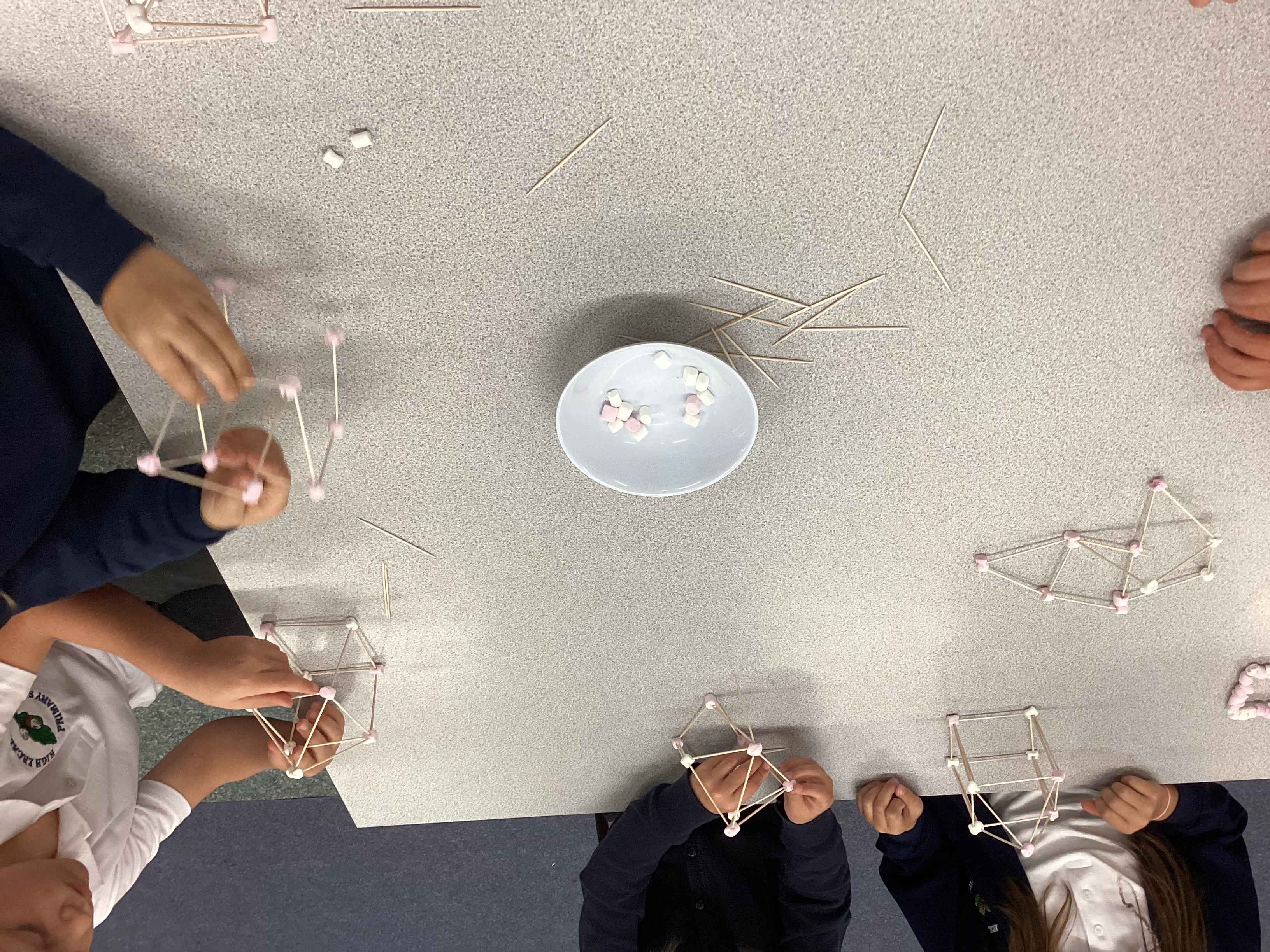
Investigating structures in Key Stage One Science Club after school.
